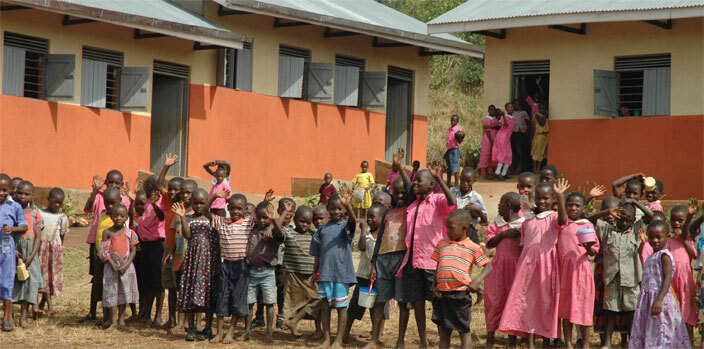World Vision Supplement
Celebrating 30 years of development
Three decades of promoting access to universal education
By Vision Reporter
Education is the key to unlocking any child's potential. World Vision seeks to provide education for life in order to help children live productive and fulfilling lives. World Vision's education strategy seeks to ensure that children attain core skills and abilities they need to lead productive and fulfilling lives.
It aligns with the shared global commitment to the educationfor- All Dakar goal that calls for all children receiving, at a minimum, ‘recognised' and ‘measurable' levels of reading, basic mathematics and the most essential life skills.
At the same time, it aligns with the Ministry of Education and Sports Education Sector Strategic Investment Plan 2005-2015. In 2014, World Vision Uganda focused on ensuring that children have equitable access to education through improving the physical, social cultural and pyscho-social environment for each child to access and complete school, while at the same time achieving improved measurable learning outcomes in literacy, numeracy and life skills.
In 2014, World Vision made significant progress increasing community engagement in education and made significant strides in supporting children in conflict to access basic education in the childfriendly spaces.
The capacity required to support the implementation of World Vision's education programme focuses on five core areas — creating strong partnerships for quality education, capacity building of staff, partners, and teachers, community engagement, capacity building of community volunteers and parent support groups and availability of locally relevant and age appropriate learning and reading materials.
World Vision has three frameworks or project models for its education programme, early childhood education, primary education, basic education improvement plans, and adolescents (positive youth development). Impact areas receive at minimum functional levels of reading, basic mathematics and the most essential life skills.
 Pupils standing at some of the classrooms that were constructed by World Vision
Pupils standing at some of the classrooms that were constructed by World Vision
Significant progress
Over the years, significant progress has been made to increase enrolment, retention and completion of basic education. With support from communities, World Vision has invested in the construction of infrastructure such as classroom blocks, staff quarters, latrine stances and provision of furniture to provide a conducive learning environment for learners in schools.
One of the key focus areas for World Vision is to address the negative physical environment that affect equitable access to education. In areas with poor school infrastructure, communities have been supported to improve them.
In 2014 World Vision Uganda invested $2.9m in construction of school infrastructure to provide a conducive learning environment for children. At least 94 classrooms, 21 twin staff houses and 220 stances of improved pit-latrines were constructed in project areas. A total of 1,317 twin desks were supplied to schools, which lead to the improvement of the teacher desk ratio in World Vision supported schools.
Academic gains
To improve reading and numeracy, community reading camps have been established, where children gather to read story books under the guidance of a teacher. Francis Obina, a teacher in one of the community reading camps set up by World Vision Uganda, narrates the benefits of the reading camps.
"Before the programme, children could not answer any question in English. At my school — Oweka Primary School in Pader district, it was rare to even get a second grade."
"However, one year after the introduction of the reading camps, the school got seven pupils in second grade. If you are good at reading in your mother-tongue, it is easy to answer questions in English," he says.
Our education programmes also provide essential life skills for children between 12 to 18 years through vocational skills training, whereas several approaches are in place to increase enrolment, retention and completion of basic education.
Emphasis is placed on strengthening the capacities of households and communities to enable for children complete primary education through capacity building with parents and strengthening livelihoods and economic capacity of households to provide for children's education.
Building capacities of communities and local institutions is also emphasised to demand for quality primary school education by supporting an exchange programme for teachers and children to promote sharing of ideas and replication of best practices and supporting schools with essential instructional and reading materials.
Training peer educators on life skills and monitoring of Universal Primary Education programme in target schools. Improved access of girls and boys to primary school education, through the development of infrastructure in areas affected by conflict and hard to reach communities.
